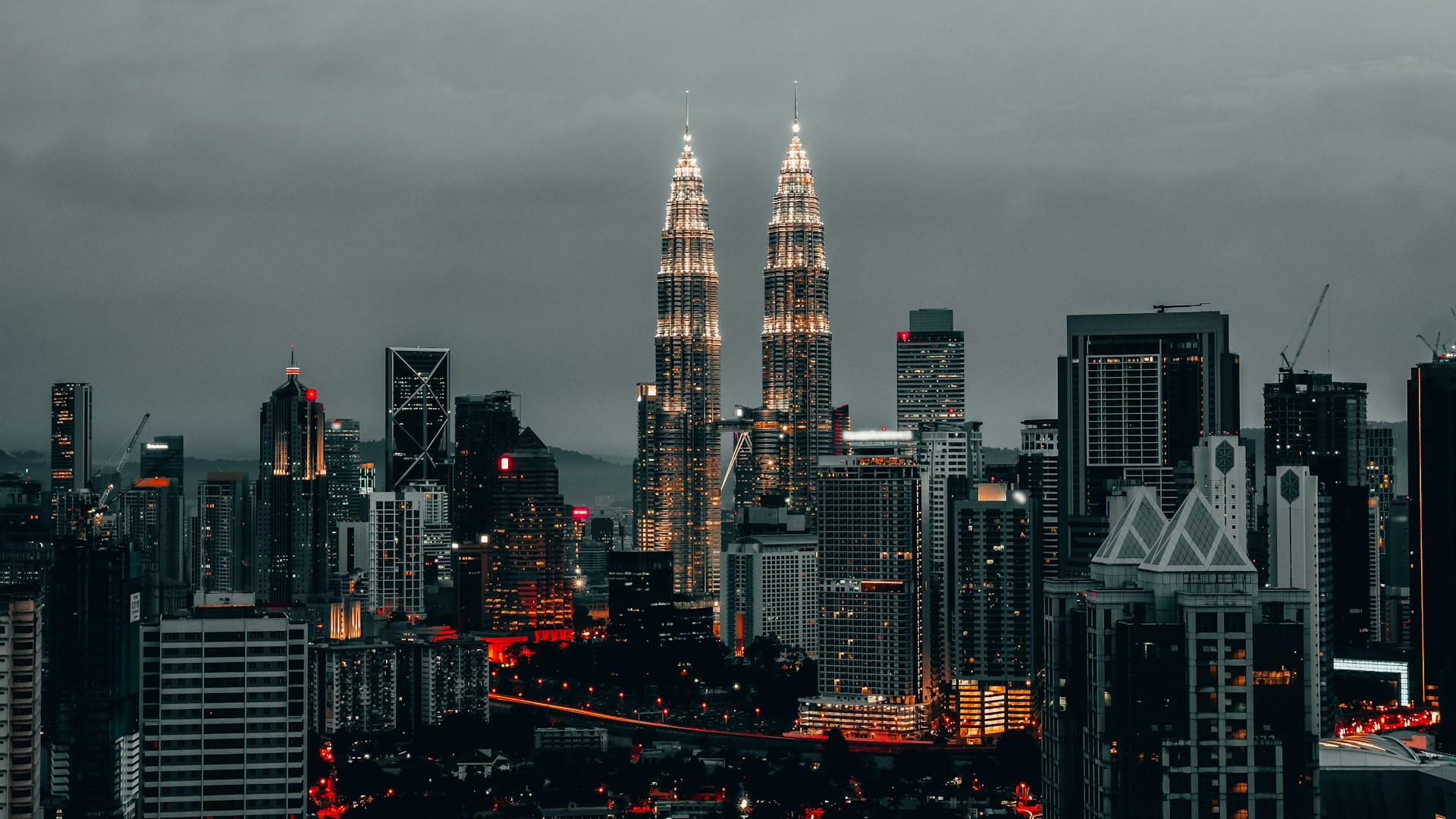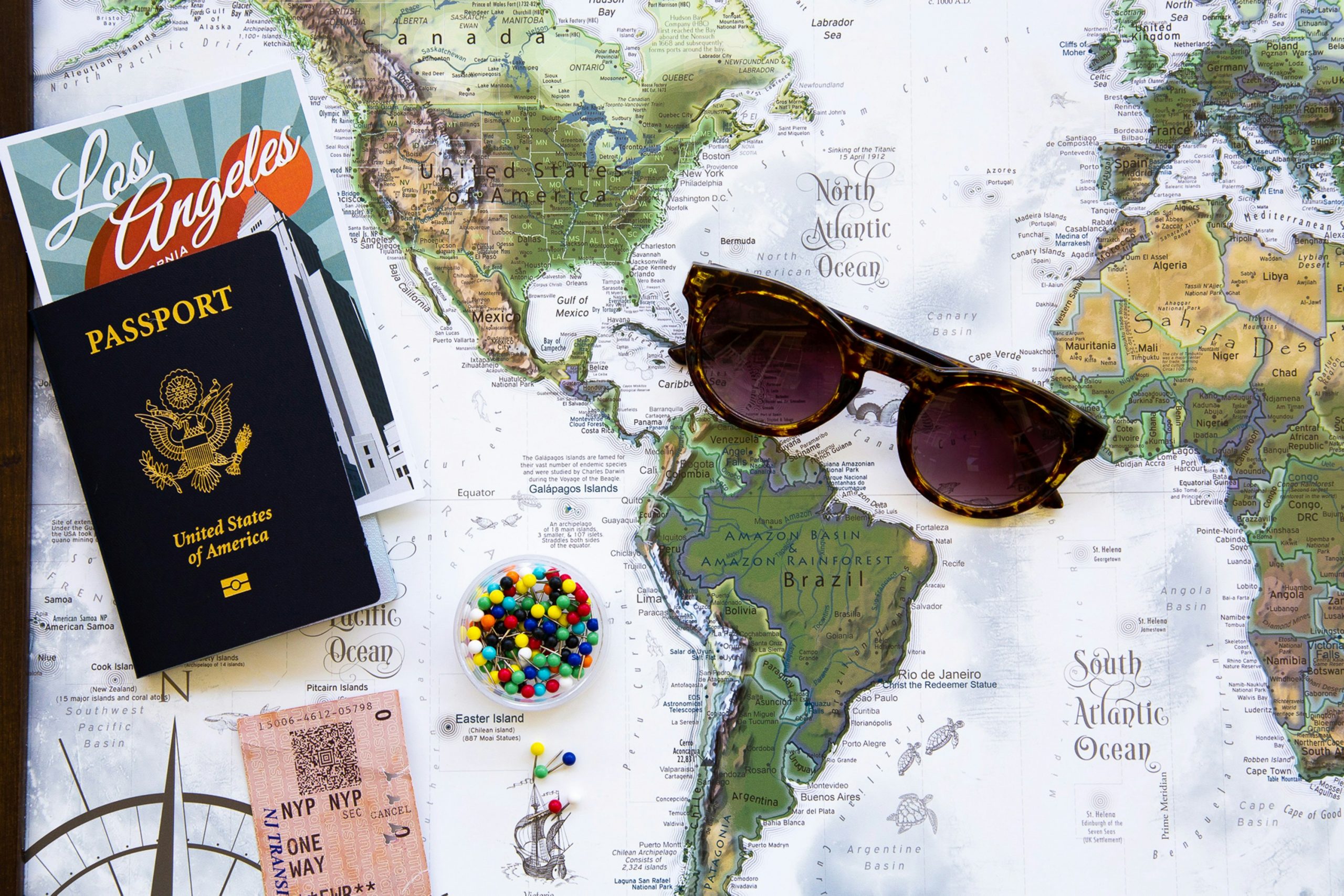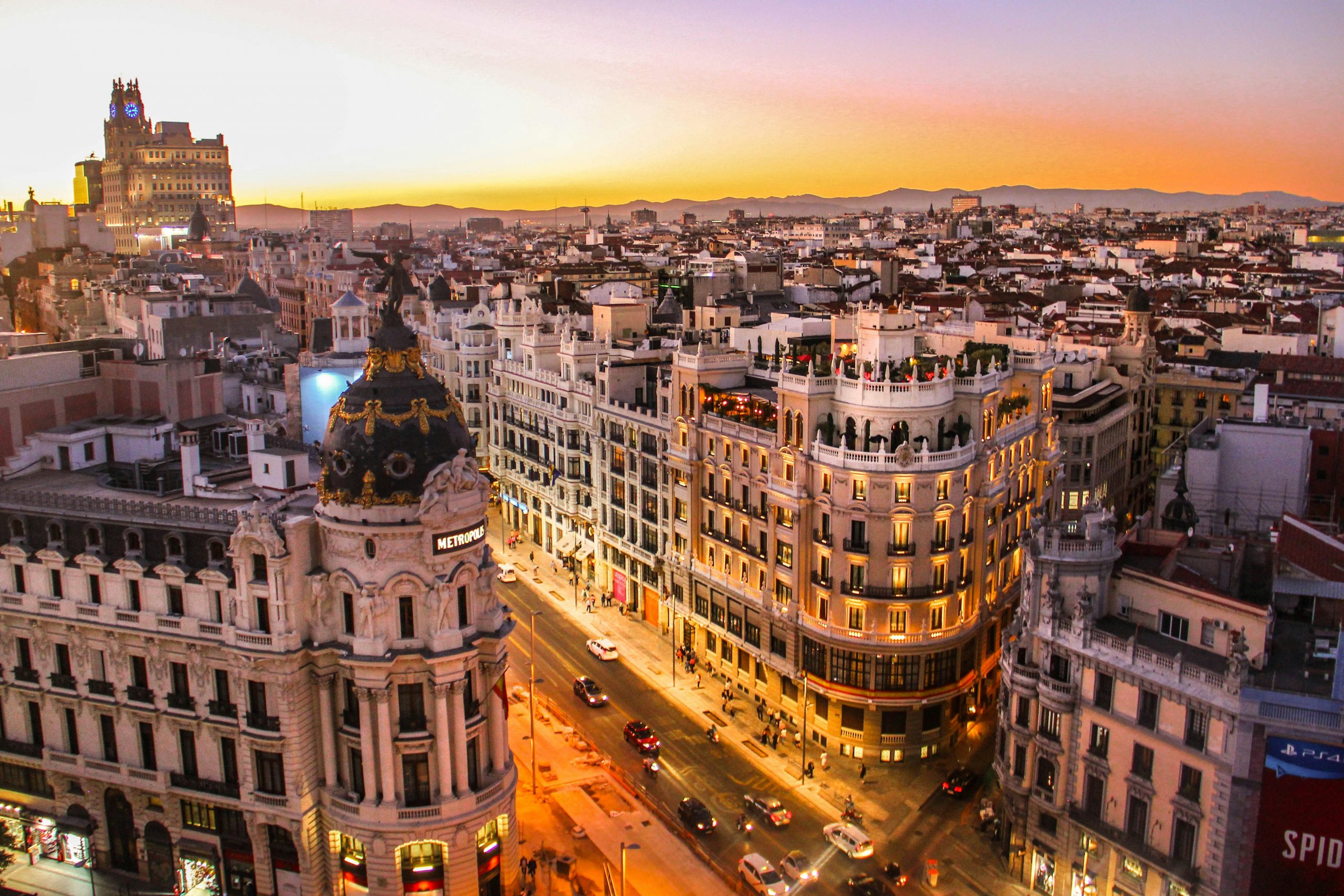✈️ Introduction
Malaysia has quickly become one of Asia’s most attractive hubs for digital nomads. Known for its modern cities, tropical islands, diverse culture, and affordable lifestyle, it offers the perfect balance between urban convenience and natural beauty.
Whether you want to live in Kuala Lumpur’s buzzing tech and startup scene, enjoy the beach life of Penang or Langkawi, or relax in the highlands, Malaysia provides an ideal base for remote workers.
Key reasons nomads are drawn to Malaysia include:
- Affordable living costs compared to Singapore, Japan, or South Korea.
- High-speed internet and modern infrastructure in major cities.
- Strategic location in Southeast Asia with excellent flight connections.
- Diverse lifestyle options – from skyscrapers to beaches, rainforests, and islands.
- Friendly expat communities and coworking hubs across the country.
To support this growing community, the government launched the De Rantau Nomad Pass in 2022, officially creating Malaysia’s version of a digital nomad visa.
🌍 Overview of the De Rantau Nomad Pass
The De Rantau Nomad Pass is Malaysia’s official digital nomad visa program, introduced under the Malaysia Digital Economy Corporation (MDEC).
Key Features at a Glance
- Visa Type: De Rantau Nomad Pass (Digital Nomad Visa)
- Who it’s for: Remote employees, freelancers, and digital entrepreneurs working for foreign companies/clients
- Initial Duration: 12 months
- Renewal: Extendable for another 12 months (total of 2 years)
- Income Requirement: Minimum $24,000 annual income (~$2,000/month)
- Application Location: Online via MDEC portal
- Family Inclusion: Spouse and dependent children can be added
- Work Restrictions: Cannot work for Malaysian employers or earn income from Malaysia-based companies
Why It’s Attractive
- Affordable compared to Western and East Asian hubs.
- One of the lowest income thresholds in Asia for a digital nomad visa.
- Flexible program that includes both freelancers and remote employees.
- Family-friendly visa with dependents allowed.
- Strategic location between Thailand, Singapore, Indonesia, and Vietnam for regional travel.
⚠️ Note: This visa is designed for remote workers with foreign income. If you want to work with Malaysian employers, you’ll need a different type of work visa.
Eligibility Criteria & Income Requirements (2025)
The De Rantau Nomad Pass is one of the most flexible and accessible digital nomad visas in Asia. Unlike some programs that are restricted to IT professionals (like the Czech Republic) or come with very high income requirements (like Iceland), Malaysia keeps the requirements broad and affordable.
🎯 Who Qualifies for the Malaysia Digital Nomad Visa?
You may qualify if you are a:
- Remote employee working for a company registered outside Malaysia.
- Freelancer or independent contractor serving international clients.
- Digital entrepreneur managing a business incorporated abroad.
You must also:
- Be a non-Malaysian citizen.
- Work exclusively with foreign companies/clients (no Malaysian employers).
- Have a clean background (no immigration or criminal issues).
- Hold valid health insurance covering Malaysia.
- Earn a stable minimum income (see below).
You are not eligible if you:
- Plan to work for local Malaysian companies.
- Cannot prove sufficient income.
- Lack health insurance or supporting documents.
💰 Income Requirements
The financial requirement for Malaysia’s De Rantau Nomad Pass is much lower than most countries, making it accessible to a wider group of nomads.
- Minimum income: USD 24,000 annually (~USD 2,000/month).
- Couples and families may need to show higher combined income to cover dependents.
- Proof required: bank statements, payslips, freelance contracts, or tax documents.
👉 Compared with other digital nomad visas:
- Iceland: €7,100/month (extremely high)
- Romania: €3,300/month
- Hungary (White Card): €2,000/month
- Malaysia (De Rantau): ~$2,000/month → among the lowest in Asia, making it very attractive.
📋 Other Key Eligibility Conditions
- Passport Validity: Must cover your intended stay + at least 6 months.
- Employment Proof: Remote job contract, freelance agreements, or business registration abroad.
- Health Insurance: Must cover at least USD 30,000 for medical expenses in Malaysia.
- Accommodation Proof: Rental agreement, hotel booking, or property ownership.
- Family Applications: Marriage/birth certificates (translated & legalized) if applying with dependents.
✅ Quick Eligibility Checklist
- Do you earn at least $2,000/month from foreign sources?
- Do you work remotely (employee, freelancer, entrepreneur)?
- Do you have valid health insurance covering Malaysia?
- Do you have accommodation arranged for your stay?
- Do you want to stay in Malaysia for 1–2 years?
👉 If yes, you’re likely eligible for the De Rantau Nomad Pass.
Application Process, Documents, Fees & Timelines
Applying for Malaysia’s De Rantau Nomad Pass is straightforward compared to many European nomad visas. The process is fully online and managed by the Malaysia Digital Economy Corporation (MDEC).
🛠️ Step-by-Step Application Process
Step 1 – Prepare Your Documents
Collect all necessary paperwork (passport, income proof, contracts, insurance, accommodation).
Step 2 – Apply Online via MDEC
- Submit the application through the official De Rantau portal.
- Upload scanned copies of documents in PDF/JPEG format.
Step 3 – Pay the Application Fee
- Payment is made online (see fees below).
Step 4 – Wait for Processing
- Immigration and MDEC review your documents.
- Additional clarifications may be requested.
Step 5 – Receive Approval
- If approved, you’ll receive a visa approval letter.
Step 6 – Enter Malaysia & Collect Pass
- Travel to Malaysia with your approval letter.
- Collect your De Rantau Nomad Pass upon arrival and register locally if needed.
📄 Required Documents Checklist (2025)
- ✅ Completed Online Application Form
- ✅ Valid Passport (must be valid for 6+ months beyond stay)
- ✅ Passport-Sized Photos (recent, biometric standard)
- ✅ Proof of Remote Work – job contract, freelance agreements, or company registration abroad
- ✅ Proof of Income – payslips, bank statements, or tax filings showing $24,000 annual minimum
- ✅ Health Insurance valid in Malaysia (coverage of at least $30,000)
- ✅ Accommodation Proof – lease, Airbnb booking, hotel reservation, or property deed
- ✅ Clean Criminal Record Certificate (if requested)
- ✅ Family Documents – marriage/birth certificates for dependents (translated & legalized)
👉 All documents must be in English or Malay, or translated officially.
💶 Fees & Costs (2025)
- Application Fee:
- Main applicant: RM 1,000 (~$220)
- Each dependent: RM 500 (~$110)
- Health Insurance: $50–100/month (varies by provider)
- Translations & Legalizations: $20–50 per page (if needed)
👉 Compared to EU nomad visas that cost €500–€2,000, Malaysia’s fees are very affordable.
⏱️ Processing Times
- Standard Processing: 4–6 weeks
- Approval Letter Issuance: Sent by email once approved
- Collection: Pass obtained upon arrival in Malaysia
👉 Overall, expect around 1–2 months from application to approval.
📝 Quick Application Summary
- ✅ Apply online via MDEC with $2,000/month income proof
- ✅ Pay RM 1,000 (
$220) + RM 500 ($110) per dependent - ✅ Processing takes 4–6 weeks
- ✅ Stay in Malaysia for 12 months, extendable to 24 months
Benefits, Cost of Living & Best Cities for Digital Nomads in Malaysia
🎉 Benefits of the Malaysia Digital Nomad Visa (De Rantau Pass)
The De Rantau Nomad Pass stands out as one of the most affordable, flexible, and family-friendly digital nomad visas in Asia.
1. Affordable Income Requirement
- At only $2,000/month, it’s far more accessible than Iceland (€7,100) or Romania (€3,300).
2. Family-Friendly Program
- Spouses and dependent children can be included.
- Dependents enjoy the same visa duration.
3. Longer Stay Than a Tourist Visa
- Tourist visas usually allow 30–90 days.
- The De Rantau Pass allows 1 year, renewable for another year.
4. Modern Infrastructure
- High-speed internet, coworking hubs, and excellent transport links.
- English is widely spoken in urban areas.
5. Strategic Location in Asia
- Easy access to Thailand, Singapore, Indonesia, and Vietnam.
- Major international airport hub in Kuala Lumpur.
6. Low Application Fees
- At ~$220 for the main applicant, Malaysia is cheaper than most EU and Asian visa programs.
💸 Cost of Living in Malaysia (2025)
Malaysia offers one of the best quality-to-cost ratios in Asia.
🏠 Housing (Monthly Rent)
- Kuala Lumpur (KL): $400–800 for 1-BR; $800–1,500 for 2-BR in expat areas.
- Penang: $300–700 for apartments near George Town.
- Langkawi / Johor Bahru: $250–600 for smaller apartments or houses.
🍴 Food & Dining
- Street food meals: $2–4.
- Mid-range restaurant: $8–15 per person.
- Coffee: $2–3.
- Monthly groceries: $150–250.
🚇 Transportation
- Grab (ride-hailing): $2–6 per ride.
- Monthly public transport pass (KL): $30–40.
- Domestic flights (KL–Penang/Langkawi): $20–50.
💻 Coworking Spaces
- Kuala Lumpur: $100–200/month.
- Penang: $70–120/month.
- Langkawi: $50–100/month (fewer spaces, more cafés with Wi-Fi).
🧾 Average Monthly Budget (Solo Nomad)
- Frugal lifestyle: $1,000–1,200.
- Comfortable lifestyle: $1,500–2,000.
- Family lifestyle: $2,500–3,500.
👉 Malaysia offers a comfortable lifestyle for a fraction of the cost of Singapore or Hong Kong.
🏙️ Best Cities in Malaysia for Digital Nomads
1. Kuala Lumpur (KL) – Capital & Startup Hub
- Pros: Fastest internet, coworking hubs, international community.
- Cons: Busy and more expensive than other cities.
2. Penang – Cultural & Creative Island
- Pros: UNESCO heritage city (George Town), café culture, great street food.
- Cons: Smaller nomad community than KL.
3. Langkawi – Beach & Island Living
- Pros: Tropical paradise, duty-free shopping, relaxed vibe.
- Cons: Fewer coworking spaces, slower lifestyle.
4. Johor Bahru – Border City Next to Singapore
- Pros: Low costs with quick access to Singapore.
- Cons: Less developed digital nomad ecosystem.
5. Kota Kinabalu (Borneo) – Adventure & Nature
- Pros: Stunning nature, diving, hiking, eco-tourism.
- Cons: Remote from main international hubs.
👉 Most nomads base themselves in Kuala Lumpur for networking or Penang for lifestyle balance, while Langkawi is ideal for those seeking a slower pace in paradise.
Taxes, Family Rules, Renewal, FAQs & Conclusion
🏦 Taxes for Digital Nomads in Malaysia
- Tax Residency Rule: You become a tax resident if you stay 183+ days in a year.
- Tax Rate: Flat 30% tax on foreign-sourced income remitted into Malaysia (introduced in 2022 reforms).
- Non-Residents (<183 days): Subject to 30% flat rate on Malaysia-sourced income only.
- Digital Nomad Advantage: Since the De Rantau Pass requires foreign employers/clients only, most nomads do not pay local taxes unless they remit income into Malaysian bank accounts extensively.
👉 Many nomads keep earnings abroad to avoid triggering Malaysian tax.
👨👩👧 Family Inclusion
The De Rantau Nomad Pass is family-friendly.
- Eligible Dependents: Spouse/partner and children under 18.
- Visa Fee for Dependents: RM 500 (~$110) each.
- Duration: Same validity as the main applicant (12 months, extendable).
- Requirements:
- Marriage or birth certificates (translated & legalized).
- Proof of sufficient financial resources.
- Work Rights: Dependents cannot work in Malaysia under this visa.
🔄 Renewal & Long-Term Options
- Initial Duration: 12 months.
- Renewal: Extendable for another 12 months (total of 24 months).
- Permanent Residency (PR): The De Rantau Pass does not count toward PR or citizenship.
- Alternative Pathways: Long-term expats may explore Malaysia My Second Home (MM2H) program for semi-permanent residency.
👉 The De Rantau Pass is best as a short-to-mid-term stay option, not for permanent relocation.
❓ FAQs – Malaysia Digital Nomad Visa (2025)
1. How long is the Malaysia Digital Nomad Visa valid?
12 months, extendable to 24 months.
2. What’s the income requirement?
At least USD 24,000/year (~USD 2,000/month).
3. Can I bring my family?
Yes, spouse and dependent children can join.
4. How much does it cost?
RM 1,000 ($220) for main applicant, RM 500 ($110) per dependent.
5. Can I work for Malaysian companies?
No, only for foreign employers/clients.
6. How long does approval take?
4–6 weeks.
7. Do I need health insurance?
Yes, coverage of at least $30,000 is required.
8. Do I pay taxes in Malaysia?
Not usually, unless you stay 183+ days and remit foreign income into Malaysia.
9. Which are the best cities for digital nomads?
Kuala Lumpur, Penang, Langkawi, Johor Bahru, and Kota Kinabalu.
10. Does this visa lead to PR or citizenship?
No, it’s a temporary pass only.
🌟 Conclusion
The Malaysia Digital Nomad Visa (De Rantau Nomad Pass) is one of Asia’s most affordable and flexible digital nomad programs in 2025. With a low income requirement ($2,000/month), family-friendly policies, and a 1–2 year stay option, Malaysia offers a strong balance between cost, lifestyle, and accessibility.
Why It’s Attractive
✅ Low income threshold compared to Europe/Asia
✅ Affordable application fees (~$220)
✅ Family-friendly with dependent inclusion
✅ Strategic location in Southeast Asia
✅ Modern infrastructure with English widely spoken
✅ Rich culture, cuisine, and nature
Challenges to Consider
⚠️ Does not lead to permanent residency or citizenship
⚠️ Tax rules on foreign-sourced income can be complex
⚠️ Very hot and humid climate year-round
⚠️ Dependents cannot work locally
👉 If you’re a remote professional earning $2,000+/month and seeking a 1–2 year affordable Asian base, Malaysia is one of the best digital nomad destinations in 2025.



